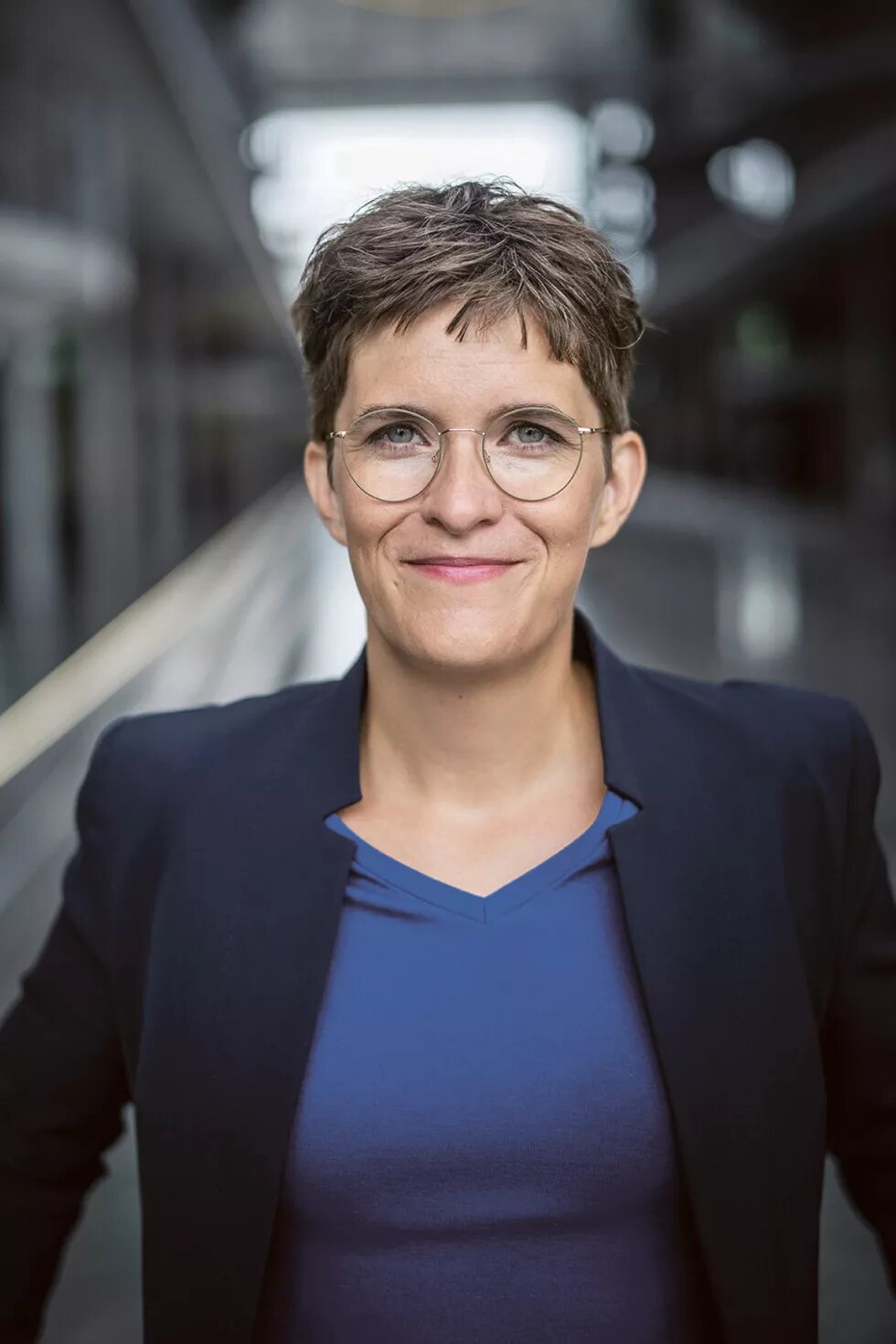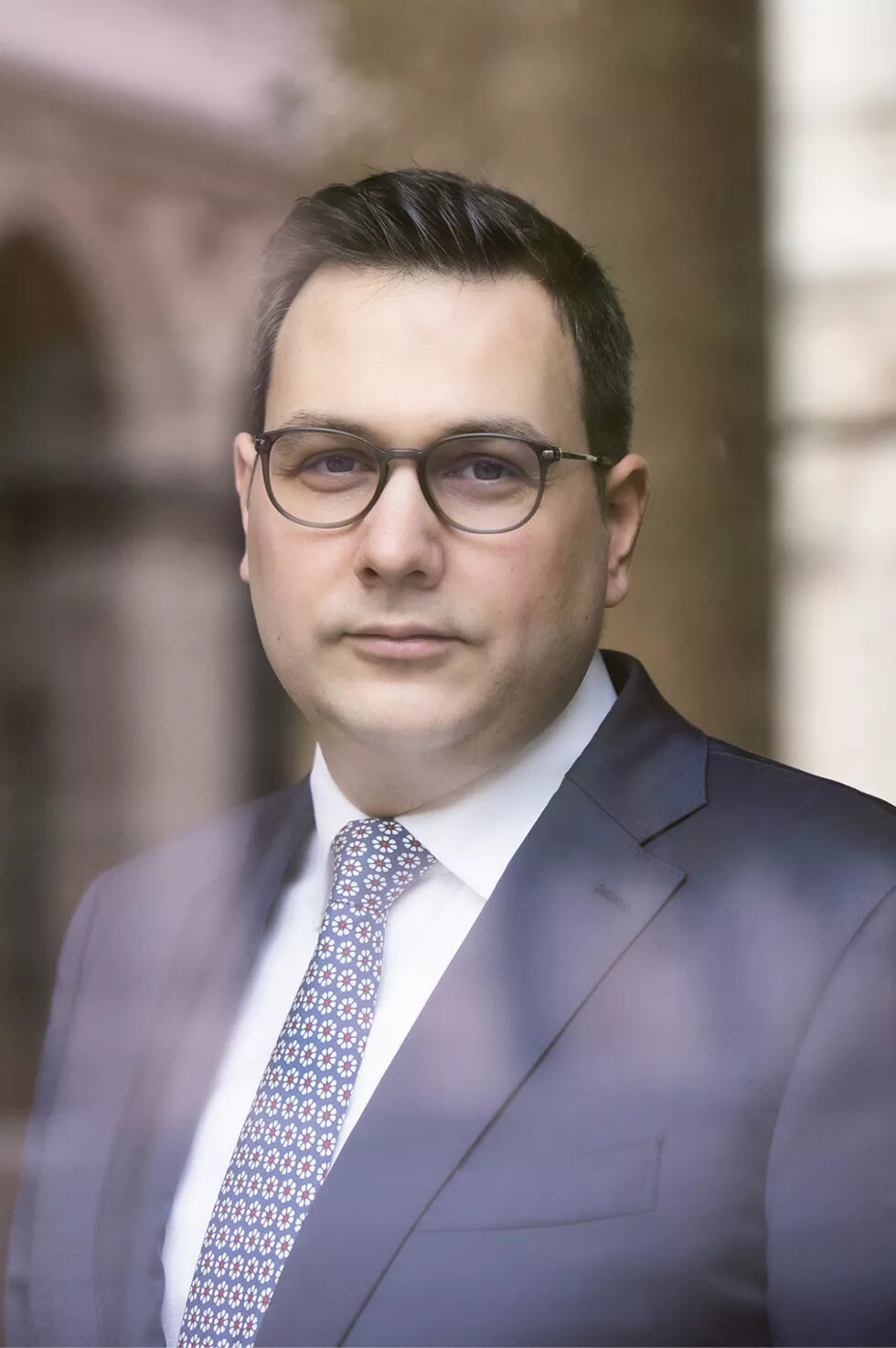«Europe must grow larger and stronger»
On May 1, 2004, almost exactly 20 years ago, I stood amid a euphoric crowd on the Oder Bridge between Frankfurt (Oder) and Słubice. At midnight, the then Foreign Minister Fischer and his Polish counterpart Cimoszewicz opened the border between Poland and Germany. At the same time, hundreds of thousands of people across Europe celebrated the accession of the ten new EU Member States Estonia, Latvia, Lithuania, Malta, Poland, Slovenia, Slovakia, the Czech Republic, Hungary, and Cyprus. That night, the EU grew from 15 to 25 members.
I had travelled to Frankfurt in my role as member of the Bundestag to witness the historic moment in person. A lot has happened since then. Since joining the EU, the new Member States have made huge gains in economic strength. In the Czech Republic, for example, the gross domestic product in 2004 was US$11,700 per capita; after almost 20 years of EU membership, it has nearly tripled to around US$30,500. Lithuania even quadrupled its economic output per capita in the same period (statista.com, October 2023). Since then, countless people have started families, made friends, or built businesses across these open borders.
EU enlargement is a success story that we should continue to write because the future of Ukraine, Moldova, the Western Balkans, and Georgia also lies in the EU. The countries of the Western Balkans have been sitting in the waiting room for a very long time. Its people are losing hope, and the EU is losing credibility. Putin knows how to exploit this and is trying to weaken Europe by destabilizing the entire region with money, hatred, and fake news. At the same time, he is bombing Ukraine day and night because the Ukrainians have opted for a future in the EU. For Ukraine, the EU is a promise of a life in peace, freedom, and security. We must deliver on this promise. Enlargement not only benefits the people in the future Member States, but it is also in our own best interest – after all, a safe and stable neighborhood makes us all safer and Europe more stable.
The EU must speak with one voice and act as one on the global stage
But we must also face the reality that a larger EU is not automatically a stronger one. Even now, we are often not agile enough, not fast enough, not united enough. That is why we must press ahead with EU reform alongside enlargement. Currently, the entire EU can be incapacitated by a single Member State. This must end. We must introduce more majority voting on matters of foreign affairs, enlargement, and tax policy to become more agile and to function better. We want the EU to finally speak with one voice and act as one on the global stage, defending our values and interests against autocrats.
However, we must not only defend our values to the outside world, but also within the EU. We must protect the foundations of our Union – freedom, democracy, and human rights. We must not compromise on any of these, neither for current nor for future EU members. Instead, we should sharpen our tools to enforce the rule of law in the EU, putting democracy and the rule of law at the very center of our reform debate. Lastly, the EU needs adequate funding, which is why we need to consider ways to increase its revenue.
The debate on EU enlargement and reform will be a major campaign issue in the upcoming European elections. Our goal is clear: We want to enlarge and strengthen Europe! Once again, I want to stand in a euphoric crowd, celebrating our next EU enlargement in Tirana, Sarajevo, Belgrade, Skopje, Podgorica, Kyiv, Chișinău, or Tbilisi.
Dr Anna Lührmann is Minister of State for Europe at the Federal Foreign Office and Member of the Bundestag for the district of Rheingau-Taunus-Limburg. Until 2021, she worked as a junior professor and democracy researcher at the University of Gothenburg.
«It’s time»
In 2024, Europe and its citizens will mark a number of anniversaries of their recent shared history. We will celebrate 35 years since the fall of the Iron Curtain, the event that ended the division of the continent into a liberal West and an illiberal East. For decades, citizens had to live under the yoke of Soviet Communism. 2024 will mark 20 years since most Central and Eastern European countries joined the North Atlantic Alliance (NATO) and the European Union. My country took the first step in this direction back in 1999 when it joined NATO.
The past 20 years have changed the Czech Republic, German-Czech relations, and the European Union. Both sides harbored fears, which did not materialize. The German labor market was not flooded with Czech workers. Instead, some business sectors in Germany are thriving today thanks to Czech skilled workers, whether they work directly in Germany or in the subsidiaries of German companies in the Czech Republic. Crime did not spike in the borderland between Poland and Germany. Many people in Germany had fears that turned out to be unfounded, and many were surprised by the development we are seeing today.
However, these anniversaries also remind us that the task of reuniting Europe is far from accomplished. To this day, Ukraine, Moldova, and the countries of the Western Balkans have been left out. This has created gray zones, which Russian dictator Vladimir Putin is only too happy to exploit as he constantly seeks out opportunities to prop up his regime by way of external aggression.
There were warning signs pointing to this danger in Eastern Europe. We all overlooked them and are now reaping the bitter fruits of our failure, not only in the bloody war against Ukraine, but also in the rise of populist parties in the EU. We had no idea how much energy it would cost us to battle against authoritarians, dictators, and extremists; we anticipated neither the ease with which they would spread fake news nor the destructive effect this would one day wreak on our societies. It is all the more urgent now to strengthen the EU’s external borders and our common defense policy.
The Czech Republic wants to offer other countries the same assistance it once received
We are aware that our accession to the EU was a strategic decision. More than 20 years ago, the EU opted against the “regatta principle” that would have had candidate countries compete for accession. Enlargement was a decision made at the political level. The issue of meeting the accession criteria was tackled later. I believe we must take the same approach in the next rounds of enlargement with the countries of the Western Balkans, Ukraine, or other Eastern European states.
The Czech Republic wants to offer the candidate countries and war-torn Ukraine the same assistance it once received itself. Our citizens are still enthusiastic about the EU. We want to work for positive change. Our level of support for Ukraine and its refugees per capita is quite extraordinary compared to the rest of Europe.
We want to contribute to a more transparent European policy that is closer to its citizens, which is why our aim is to uphold the principle of subsidiarity.
True freedom of movement also means uncensored internet and the free exchange of goods, services, capital, and people within the EU. I believe that the Czech Republic can use its voice in the EU to support all candidate countries – as a country that has mastered the learning curve of a new Member State and greatly matured to the point that, a year and a half ago, it was able to confidently serve its six-month Presidency of the Council of the EU under the most difficult circumstances.
In a human life, a span of 20 years ‒ the period that has elapsed since the most recent wave of EU enlargement ‒ is enough time to gain experience, but not yet lose momentum and courage for change. It is time to strengthen the European Union and facilitate more efficient cooperation between the Member States. It is time to complete the work that European leaders began after the collapse of the Soviet bloc in the late 1980s and to unite the European continent into a region of shared security and prosperity.
Jan Lipavský has been Minister of Foreign Affairs of the Czech Republic since December 2021. He was a member of the Czech Parliament from 2017 to 2021, where he served as Deputy Chairman of the Foreign Affairs Committee and of the Defense Committee.


